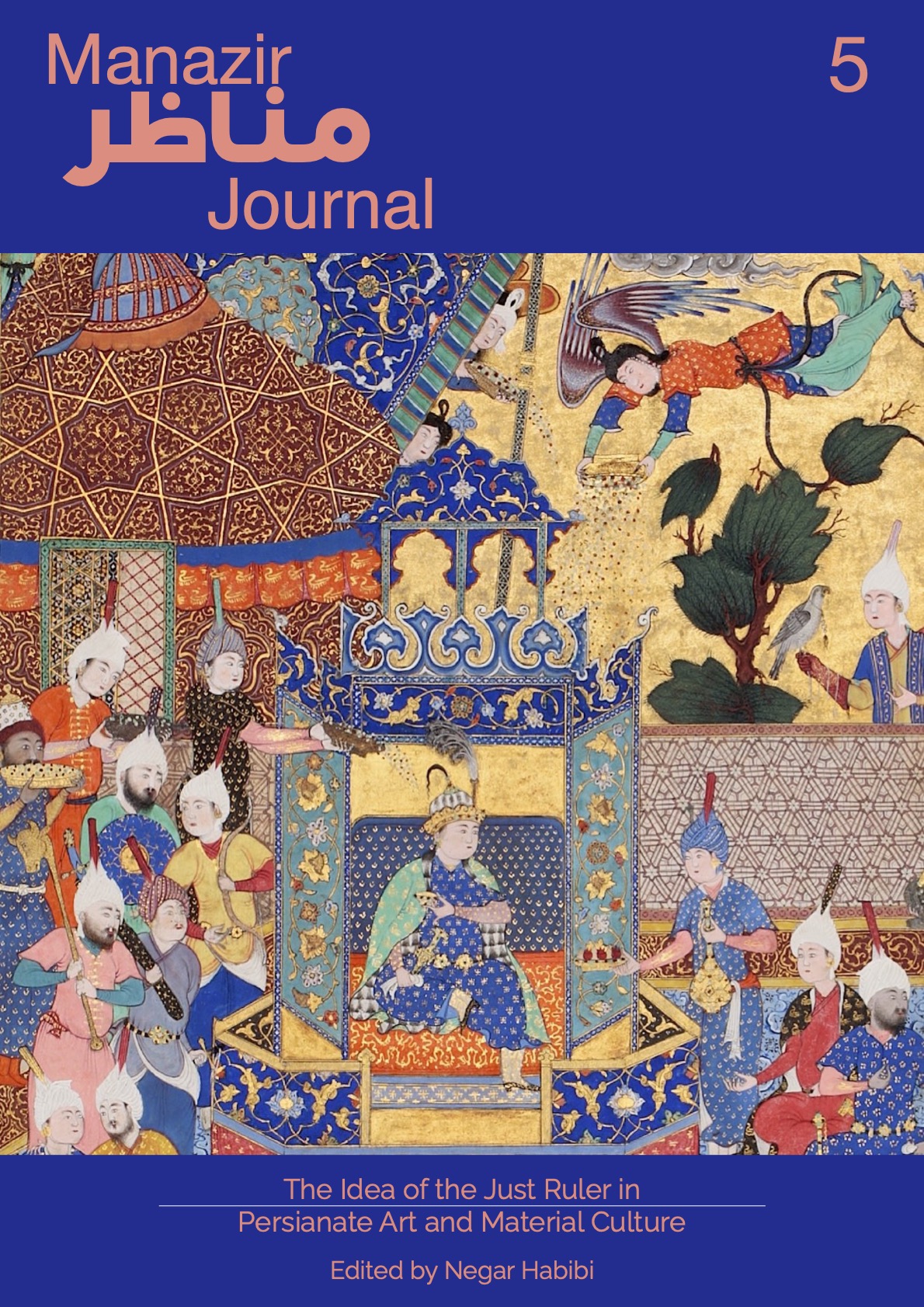
The Idea of the Just Ruler in Persianate Art and Material Culture
edited by Negar Habibi
Manazir Journal, vol. 5 (2023)
Iranian kings, or those who reigned in lands under Persian linguistic and cultural domination, followed the idea of a Just Ruler: a pious king who looked after his subjects’ divinity and spirituality in parallel to their earthly lives and needs. The Just Ruler extended righteousness and peace among his people while patronizing the construction of palaces, gardens, and new towns. The idea of a Just Ruler may be found in Sassanid monumental rock reliefs and written texts and then enriched and elaborated upon in the Islamic era by philosophers, poets, authors, and artists.
This issue of Manazir Journal focuses on how art and architecture served the representation of the Just Ruler in Persianate societies from Central Asia to Eastern Anatolia from the 14th to the 19th centuries. Illustrated books, architecture, and photography show how different kings and rulers referred to the Persian ideas of the Just Ruler by patronizing new constructions, richly illuminated books, and in the modern era, employing mediums such as photography and lithography for nationalizing the king’s image.
